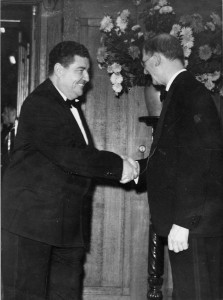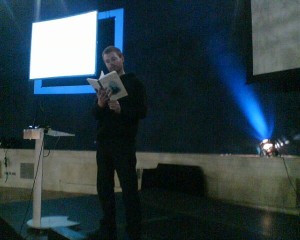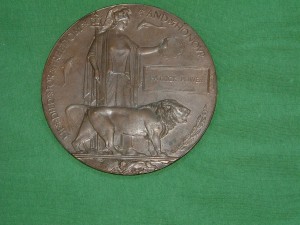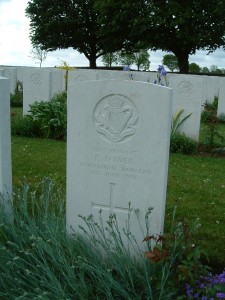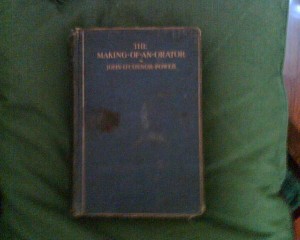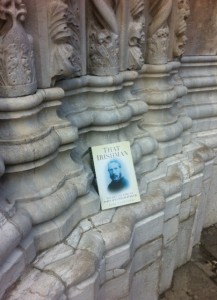In December 1887, O’Connor Power took office as Prior of The Johnson Club ‘in that noted hostelry, the Old Cheshire Cheese’. He proposed the customary toast – ‘The Memory of Dr Johnson’.
The ‘Eighty’ Club dined the same evening. Lord Granville spoke on ‘The Attitude of the Opposition’. He said all leading Liberals had opposed the Act of Union and the next Liberal government would bring in Home Rule. The present administration had ‘suspended the Constitution in Ireland’. Lord Spencer declared the Irish people ‘will not give up their aspirations’.
Four days later, O’Connor Power left Liverpool on board the Gallia Cunard. He arrived in New York 27 December and stayed at the Albermarle Hotel on Broadway.
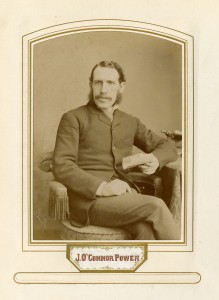 Westminster Portrait, 1877. O’Connor Power is holding a letter from Michael Davitt in Dartmoor Prison which he read aloud in the House of Commons.
Westminster Portrait, 1877. O’Connor Power is holding a letter from Michael Davitt in Dartmoor Prison which he read aloud in the House of Commons.